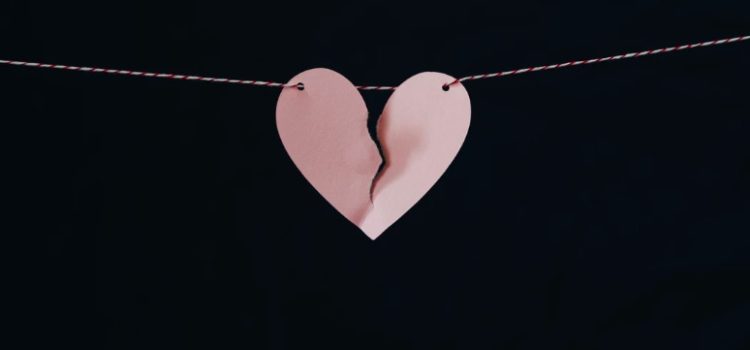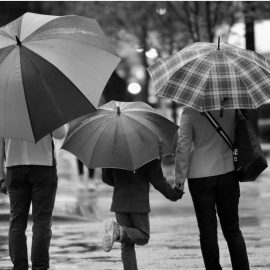

This article is an excerpt from the Shortform summary of "The 5 Love Languages" by Gary Chapman. Shortform has the world's best summaries of books you should be reading.
Like this article? Sign up for a free trial here .
We all seek love, and some of us are lucky enough to fall in love. But sometimes, people stop loving each other. Why do we fall out of love? How can a burning fire of love turn into just disappointing gray ashes?
It all has to do with how we approach love and think about it. The beginning, falling in love, is easy. But most people don’t realize that this is only a temporary period, and what happens after requires work. Learn more below about why people fall out of love.
The Beginning: Falling in Love
We all enter long-term relationships via the emotions created during the first few weeks or months or years of the union. When we meet someone we find attractive or mesh with, we feel a spark inside. Like lightning, that spark electrifies our dormant heart. We begin to take in every word, action, or look as fuel for our tanks.
- If the spark becomes more intense after a few dates, we attribute it to falling in love.
- If the spark burns out quickly, we explain it as “not meant to be.”
When we find the person we feel is “meant to be,” we become preoccupied with the feeling of love. All we want to do is swim in the sea of that new love—hugging, kissing, doing everything together. When we are without them, our thoughts of that person distract us from the realities of life. It seems that falling out of love is as far from our minds as it can get.
We put on rose-colored glasses when we find love, and the world appears in that perfect hue until we are unable to remember what the world really looks like.
We assume this is how the world will look from now on with this person by our side. If we are old enough or experienced enough, we understand that love requires compromise and arguments will happen. But the person who is in love will assume that their love will conquer all difficulties that may come.
Yet, the rest of the world does not stop functioning because we are caught in our euphoric dream. Reality will butt back in. We all eventually return to the selves we were before we fell in love.
As we move farther into our relationship, the newness wears off. The little eccentricities or habits of the object of our affection, which once were so cute, start to show themselves as character traits that may or may not fit with our reality.
When reality starts to resurface, the work of love begins.
Falling Out of Love
The feeling of being in love usually only lasts up to two years. Outside of the falling-in-love bubble lives responsibilities and basic human behaviors. The intrusion of base realities can quickly drain our energy and admiration of a loved one.
- Our partner may leave nose clippings in the sink or dirty socks on the floor.
- The need to support ourselves with jobs puts our focus on money, bills, mortgages, and savings, which are not sexy or romantic.
- Children require attention and resources, which can create competition and tension among couples.
Why do people fall out of love? These factors add up, changing our view from “anything is possible” to “how can we make this work.” And the love tank continues to deplete. From this diminished place, love has been lost or forgotten. Resentments grow when we feel the love we fell in love with fall by the wayside. A lack of love—or an emotion or action expressing the opposite of love—can feel like a dagger to our hearts.
This is how people fall out of love.
The issue isn’t that the love we share isn’t real or strong enough. The issue is that we believed that falling in love was all that was required. We felt that our new love represented personal growth. The blindness of love made us believe we had found the person we were willing to sacrifice anything for, and vice versa. In other words, falling out of love is a problem of mindset and approach, not necessarily with your relationship.
But humans are created with ego. Every relationship includes two individuals with different wants, needs, and behaviors. Our lives are designed to create experiences that serve our needs best.
After we leave the love bubble, we will strive to create our brand of life again. We will declare our desires once more, and our partners will do the same. As those desires begin to differ, the intimacy we felt with our partners will dwindle. We begin to realize that the belief in the notion of “one body, mind, and spirit,” which is what happens when you fall in love, is a fallacy.
If what happens when you fall in love is euphoria, the end of this stage must be the end of the relationship, right? Many couples will assume that when the euphoric love fades, their only options are to break up or settle for a complacent or diminished life. The trend now seems to be the former. But a few generations ago, couples chose the second option and found a way to make it work. Neither option is beneficial for a fulfilling life.
- Complacency leaves us feeling unsatisfied and unable to reach our full potentials.
- Divorce or break-ups often serve to place us back in another experience of being in love, which will also fade. Second marriages fail more often than first marriages.
The only solution to finding happiness again with a partner is to be realistic about the beginning and what is required of the rest of it.
Moving from Falling to Being in Love
If we accept that the newness of a relationship and love high are finite, we will be prepared for the moment that sensation ends. If we understand that falling in love will eventually lead to intentional love, we can avoid many pitfalls other couples fall into. You think less about what happens when you fall in love and more about how to intentionally cultivate love.
Intentional love means love created through deliberate effort.
Keeping a healthy loving relationship requires fortitude and discipline. Love is a decision, not a reaction to an emotional stimulus. If you believe this, you can avoid the major reason why people fall out of love.
A relationship requires us to grow out of our individual ego to understand and address our partners’ needs. We must actively choose to expend the energy to meet those emotional needs. We must understand that the more our partners’ needs are met, the more joy we will find in having learned to love them so well.
Although the idea of love as work is not romantic, it is impossible for lasting love to start until the euphoric love ends. For couples in long-term relationships, this fact is advantageous. If we know that real love begins once the love high ends, we will realize that staying in love is completely within our power.
Love, therefore, is not about chance or luck, but about an attitude of wanting to be loving. What happens when you fall in love feels like magic, but maintaining love needs to be deliberate. This is how you can avoid falling out of love.
We know that when we find ways to express love, we are filling up our partners’ love tanks.
In turn, we know that with a full tank, our partners will feel satisfied and stable in our relationships, and we will reap the benefits.
For instance, if one partner feels fully loved and recognizes the efforts by the other to support that feeling, they will likely want to reciprocate. The love will start to flow back and forth. This flow can be endless if the effort continues.
If we choose to love our partners, we must choose the right path to express that love. Whether that path is through Words of Affirmation, Quality Time, Receiving Gifts, Acts of Service, or Physical Touch will be dictated by our partners’ preferences. But once we know what that preference is and learn the intricacies of how to approach it, we can begin taking the right actions to intentionally show them love. This is why, in long term relationships, what happens when you fall in love is less important than what you do to stay in love.
———End of Preview———

Like what you just read? Read the rest of the world's best summary of "The 5 Love Languages" at Shortform . Learn the book's critical concepts in 20 minutes or less .
Here's what you'll find in our full The 5 Love Languages summary :
- How to figure out what your love language is, and what your partner's is
- Why arguments happen in relationships, and how to stop them
- How to speak the right love language, even if it's not yours






